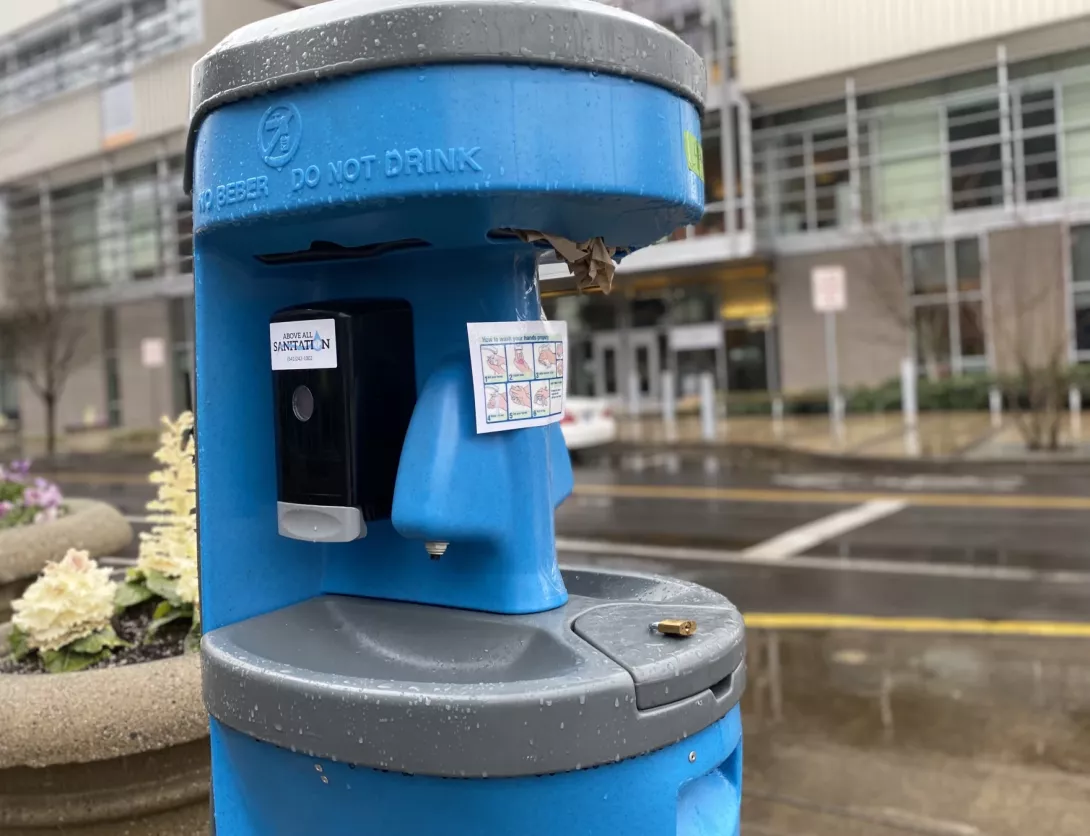
Lane County health officials are warning of an increase in an uncommon infectious bacteria.
The county has reported 18 Shigella infections so far this year, as of Thursday. That's already higher than the case count for all of last year, which was 12.
Shigella spreads through fecal matter, as well as through contaminated food, water, and surfaces. Infections can cause mid-to-high temperature fevers, cramping, vomiting, and bloody or pus-filled diarrhea. They can even be fatal in some cases.
Lane County's Chief Medical Officer, Dr. Patrick Luedtke, said most people will recover from Shigella after a few days of discomfort. However, he said some could face higher risks if their immune systems are compromised by conditions such as diabetes or malnutrition.
Luedtke said a majority of the county's new cases are linked to ongoing outbreaks in Portland, which local health officials have been watching for well over a year.
"We had thought it was a matter of time," said Luedtke. "We alerted the clinical community a little over a month ago that this may very well happen, and we got the clinical community up to speed on how to test for it, how patients present and how to prevent it. We also alerted the jail, et cetera."
Luedtke said Shigella spreads easily, as someone can get sick off of as few as ten bacteria. For comparison, he said, a salmonella infection can require up to 50,000 bacteria.
Out of the people who've been found with Shigella infection in Lane County this year, Luedtke said around ten are homeless or in-and-out of houselessness.
“It's easy to kill this bacteria with hand washing, with soap and water. It's easy to kill it with even hand sanitizer," said Luedtke. "But people who are houseless often don't have access to running water and soap. They don't have access to hand sanitizers. So they're at a higher risk."
Luedtke said while some Portland cases were caused by an antibiotic resistant strain, it hasn't yet been detected in this batch in Lane County.
If someone suspects they have Shigella, Luedtke said they should avoid sharing food, public swimming, or sexual activity. He said someone can continue to shed the bacteria for weeks after their diarrhea subsides.
Service providers respond
Lisa Levsen, a board member with Neighbors Feeding Neighbors in Eugene, said outreach workers are seeing potential cases of Shigella infections in the local homeless community.
NFN volunteers helped a homeless person who was too sick to move, and had soiled themselves. She said it was impossible to get the person into a hotel room to clean off, because they didn't have identification.
Since March, Levsen said volunteers have heard more reports from its clientele of people sick with diarrhea. She said NFN is trying to hand out wipes and hand sanitizer.
Now, Levsen is calling on Eugene to provide more handwashing stations and public bathrooms, in order to protect the local homeless community.
"We have people who need toilets. And when they get sick, other people get sick," said Levsen. "It's a health hazard for everyone, and that's why we need to work together to solve health hazard problems within the community."
Meanwhile, leaders at the Eugene Mission and White Bird Clinic told KLCC they hadn't recently seen any likely cases of Shigella firsthand.
However, Mike Tardie, the Mission's Director of Community and Volunteer Engagement, said the homeless shelter has started taking additional precautions, including changing how it serves food to prevent potential contamination.
According to Luedtke, it's still more likely that an individual case of gastrointestinal illness in Lane County is due to a more common pathogen, such as norovirus, than due to Shigella.
The increase in cases of Shigella in Lane County was first reported by KVAL.
